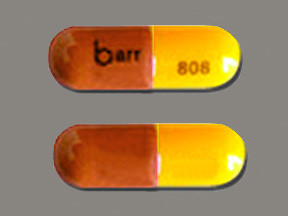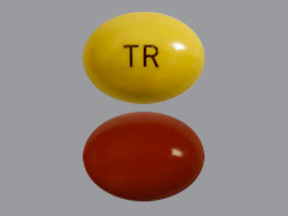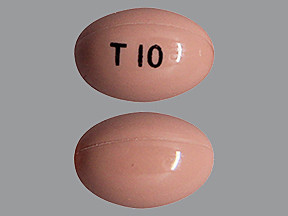TRETINOIN - ORAL
PHONETIC PRONUNCIATION: (TRET-i-noyn)
COMMON BRAND NAME(S): Vesanoid
GENERIC NAME(S): tretinoin
Uses
USES: Tretinoin is used with other medications (e.g., chemotherapy) to treat a certain type of cancer of the white blood cells (APL-acute promyelocytic leukemia). APL is a disease of too many white blood cells that do not mature or function properly. This medication is used to lessen the signs and severity of this disease (induce remission). Further treatment after remission will be determined by your doctor. Tretinoin works by promoting the growth of normal, mature cells in the bone marrow and blood. This medication helps to reverse symptoms of APL such as infections, tiredness, and bleeding. Tretinoin belongs to a class of drugs known as retinoids, which are related to vitamin A.
How to use TRETINOIN - ORAL
HOW TO USE: Take this medication by mouth, usually twice a day or as directed by your doctor. It may be taken with food. Use this medication regularly in order to get the most benefit from it. Remember to use it at the same times each day. The dosage is based on your medical condition, body size, and response to therapy. Follow your doctor's directions for how long to take this medication. Do not increase your dose or take this medication more often without your doctor's approval. Your condition will not improve any faster and the risk of serious side effects may be increased. Since this drug can be absorbed through the skin and lungs and may harm an unborn baby, women who are pregnant or who may become pregnant should not handle this medication or breathe the dust from the capsules.
Side Effects
Precautions
Interactions
Overdose
Images
Reviews
Faq for TRETINOIN - ORAL
Tretinoin oral medication is primarily used for the treatment of acute promyelocytic leukemia (a type of blood cancer) in adults who have failed other forms of treatment.
Tretinoin oral medication works by promoting the differentiation of abnormal white blood cells in the bone marrow, thereby reducing the cancer cells in the blood.
The common side effects of Tretinoin oral medication can include headache, dizziness, fatigue, fever, nausea, vomiting, abdominal pain, bone pain, and increased sweating.
The effects of Tretinoin oral medication on acute promyelocytic leukemia typically become noticeable within a few weeks to a few months of starting the treatment.
Yes, Tretinoin oral medication may interact with other drugs, including anticoagulants (blood thinners) and certain antibiotics. It is important to inform your healthcare provider about all the medications you are currently taking. Additionally, Tretinoin oral medication should not be used during pregnancy as it may harm the developing fetus.
Tretinoin oral medication should be taken exactly as prescribed by your healthcare provider. It is usually taken daily with food to decrease stomach upset. The dosage and duration of treatment will depend on your specific condition and response to the medication.
No, Tretinoin oral medication is only available with a prescription from a healthcare provider. It is not available for purchase over-the-counter.
While Tretinoin oral medication can be effective in treating acute promyelocytic leukemia, it is not a guaranteed cure. Your healthcare provider will monitor your response to the medication and may recommend additional treatments as needed.
Yes, there are other treatment options for acute promyelocytic leukemia, including chemotherapy, targeted therapy, and stem cell transplantation. The choice of treatment will depend on various factors, such as the specific characteristics of the cancer and the individual's overall health.
Warning
WARNING: Tretinoin may cause serious (sometimes fatal) side effects. Therefore, it must be used only under close medical supervision. Some patients may develop a life-threatening syndrome, usually during the first month of treatment with this medication. Tell your doctor right away if you experience any of the following symptoms: fever, trouble breathing, unusual tiredness, weight gain, swelling of the arms/legs/ankles/feet, dizziness, or fainting. You may be given other medications (e.g., corticosteroids such as dexamethasone) to treat these side effects. Your doctor will also monitor your white blood cell count. This medication can cause severe birth defects if used during pregnancy. Therefore, this medication is not recommended for use during pregnancy. Also, it is important to prevent pregnancy while taking this drug. Pregnancy tests should be done one week before you start treatment with tretinoin. When possible, do not start tretinoin treatment until you have a negative pregnancy test result. As soon as treatment begins, you must immediately start using two effective forms of birth control together (or completely avoid sexual intercourse). However, do not use "mini-pills" (progesterone birth control pills that do not contain estrogen) because they may not work as well while you are taking tretinoin. You must also have monthly pregnancy testing and birth control counseling from your doctor while taking this medication. Continue using birth control as directed until one month after tretinoin use has been stopped.
Disclaimer
IMPORTANT: HOW TO USE THIS INFORMATION: This is a summary and does NOT have all possible information about this product. This information does not assure that this product is safe, effective, or appropriate for you. This information is not individual medical advice and does not substitute for the advice of your health care professional. Always ask your health care professional for complete information about this product and your specific health needs.



No Reviews Yet